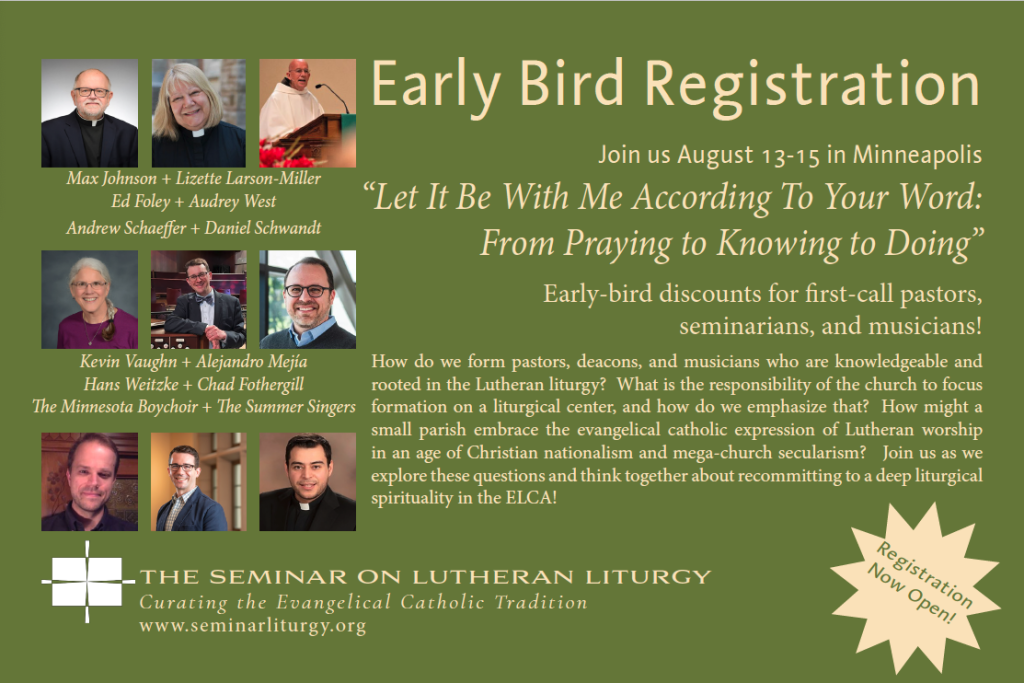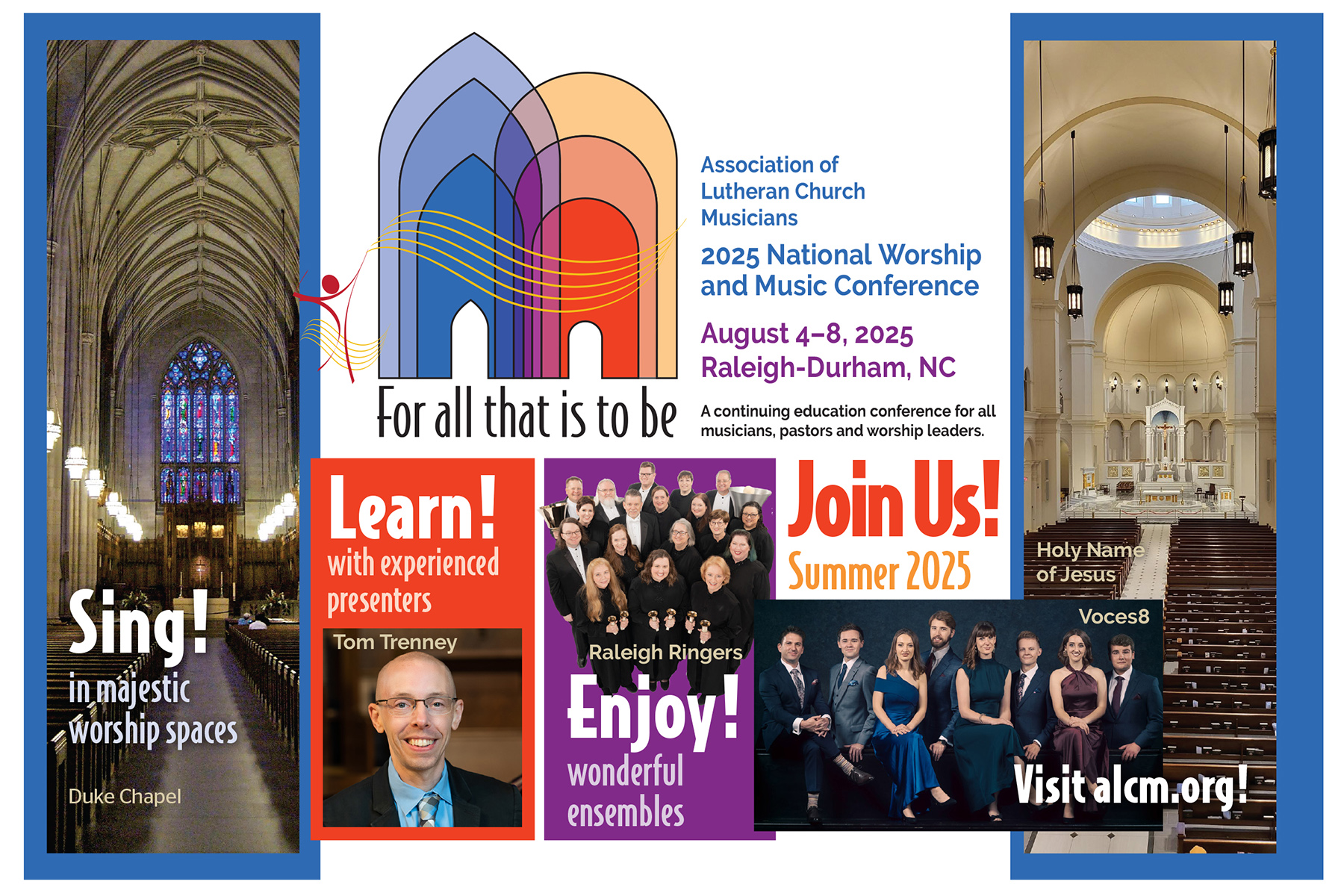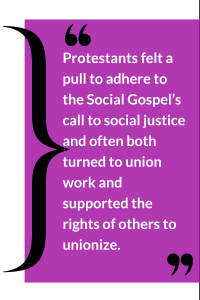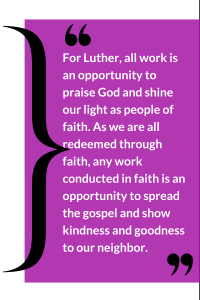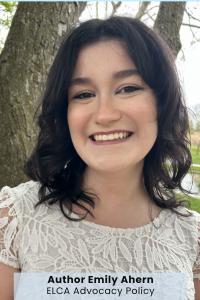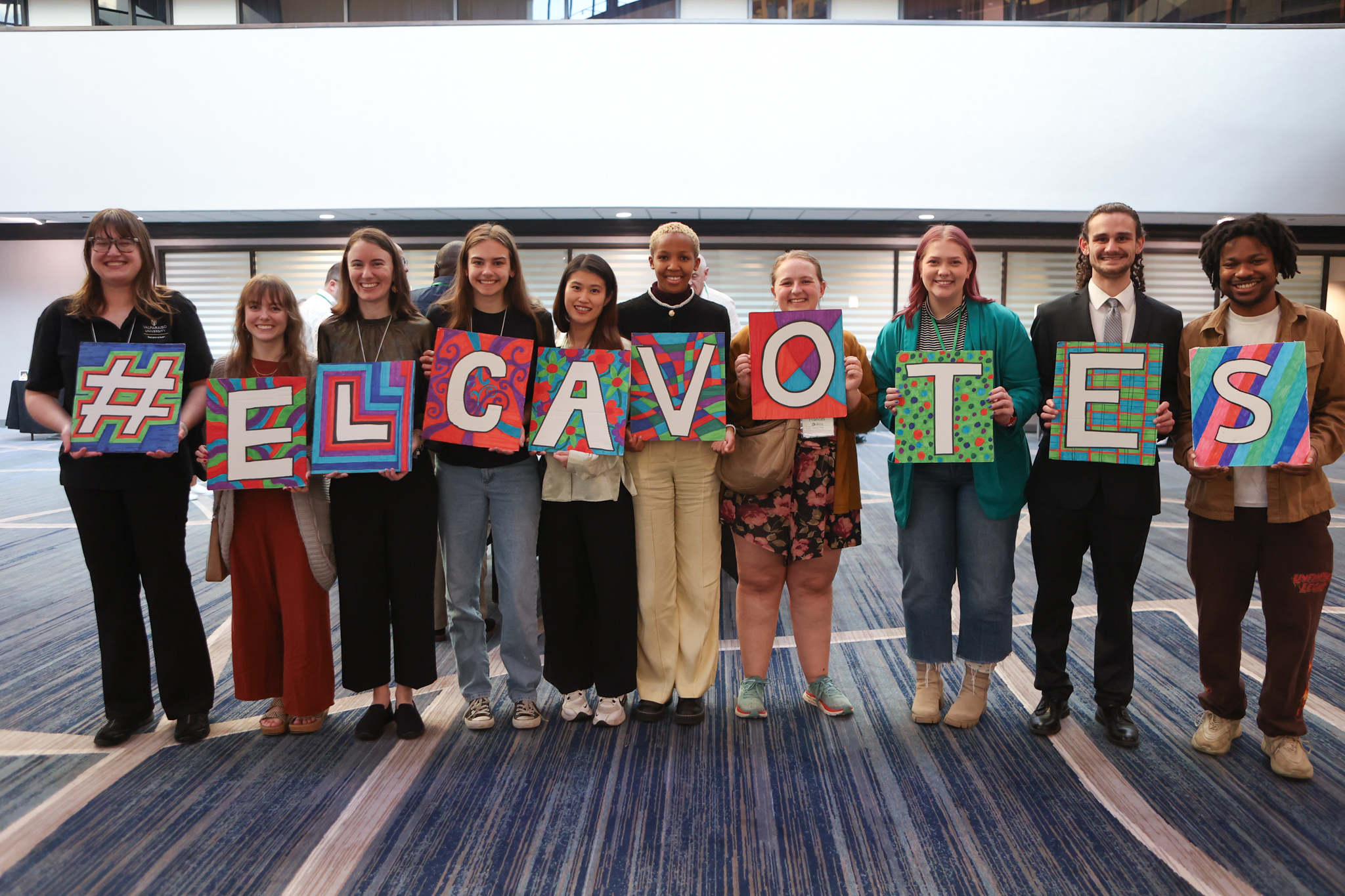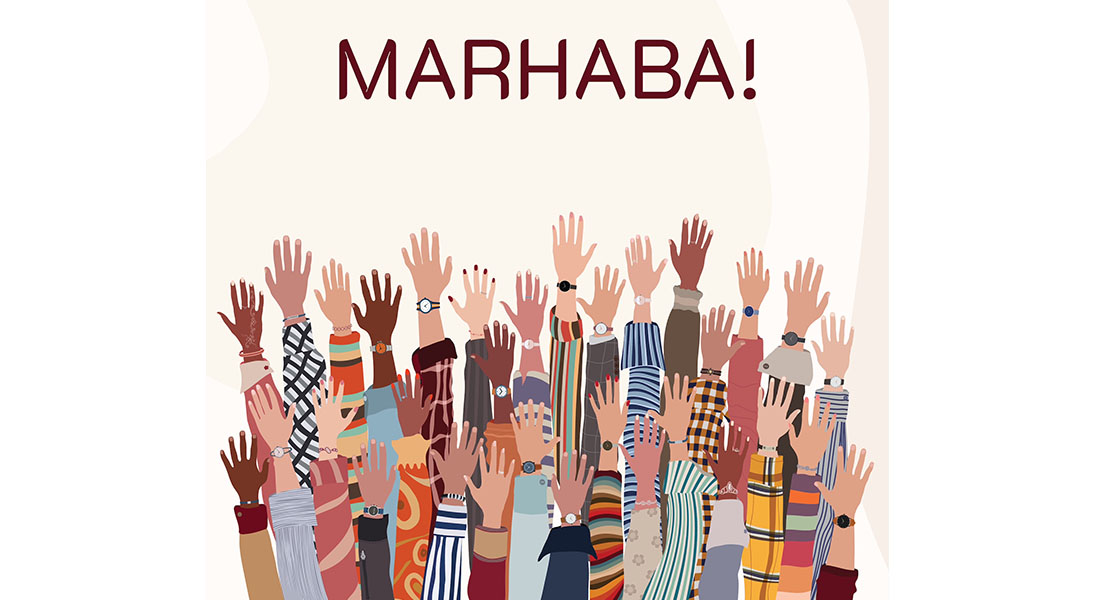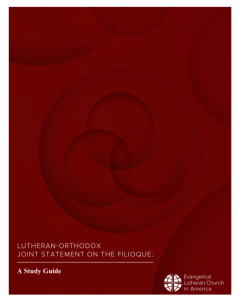Each month ELCA Worship highlights resources and events from other organizations and institutions. These Lutheran and ecumenical partner organizations work alongside the ELCA to support worship leaders, worship planners, musicians, and all who care about the worship of the church. ELCA Worship also features resources from Augsburg Fortress Publishers in a monthly blog post.
Lutheran Summer Music Academy & Festival
Transforming and connecting lives through faith and music since 1981.
Lutheran Summer Music 2025
Valparaiso University,Valparaiso, Ind.
June 22–July 20
Lutheran Summer Music (LSM) is delighted to announce the 2025 Worship Faculty of The Eugene and Mary Sukup Church Music Program, led by Cantor Chad Fothergill (LSM 2000). These gifted and highly respected leaders will guide students and the broader LSM community through a rich tapestry of sacred music experiences during morning and evening prayer, rehearsals, concerts, and more.
Whether you can join us in person or tune in from afar, we invite you to be part of this vibrant, creative community that nurtures the next generation of church musicians and breathes new life into the future of sacred music.
Learn more about LSM@LSMacademy.org
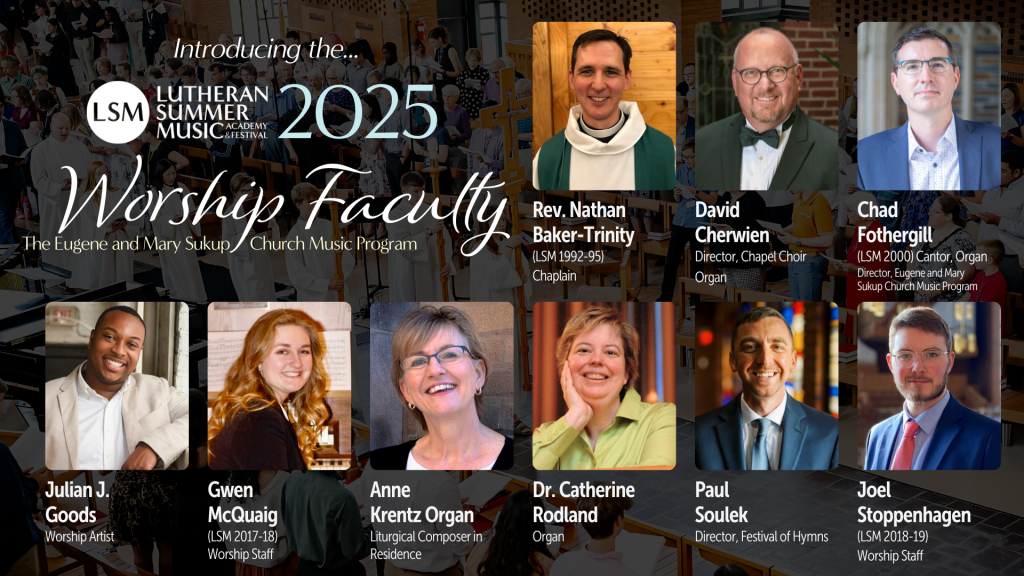
Let It Be With Me According to Your Word
Seminar on Lutheran Liturgy
Minneapolis, Minn., August 13-15
Registration is open now at www.seminarliturgy.org.
Association of Lutheran Church Musicians
ALCM nurtures and equips musicians to serve and lead the church’s song.
ALCM Conference 2025
Aug. 4-8
Raleigh-Durham, N.C.
There is still time to register for this conference! For all that is to be describes our effort to equip people in all stages of their love for music of the church. Whether you are a volunteer, part-time or full-time employed, a student, newly employed, or retired, this conference will nurture your passion for the many ways in which we continue to share the gospel message.
Registration is still available – visit the conference website to register now. We look forward to seeing you in Raleigh!
Music that Makes Community
Rooted in Christian contemplative and activist traditions, Music That Makes Community envisions a liberative culture that empowers individuals and communities to claim and use the power of singing to heal our spirits, nurture our common lives, and work for justice. We offer resources, training, and encouragement to individuals, organizations, and communities in the dynamic power of singing to connect others and ourselves.
Training Events — Join us for the following events for continuing education, community building, professional development, and celebrating this practice of paperless communal song-sharing.
- October 12: Three-day Retreat in Albuquerque, N.M.
- More in-person events are being planned. Please stay tuned!
Monday Morning Grounding — This weekly online touchstone continues to offer song, silence, sacred text and community connection, Mondays at 10 a.m. Eastern / 7 a.m. Pacific until April 7. Register for the Zoom link here.
Resources – Read the MMC blog for articles a variety of topics.
Job Postings on Music That Makes Community website.
Monthly Newsletter for regular updates on resources and events.
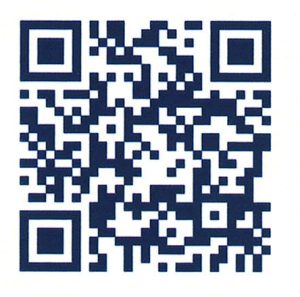
Journey to Baptismal Living: North American Associate for the Catechumenate
An ecumenical Christian community seeking to support seekers, whether baptized or not, and those who accompany them on their journey of faith through the catechumenal process.
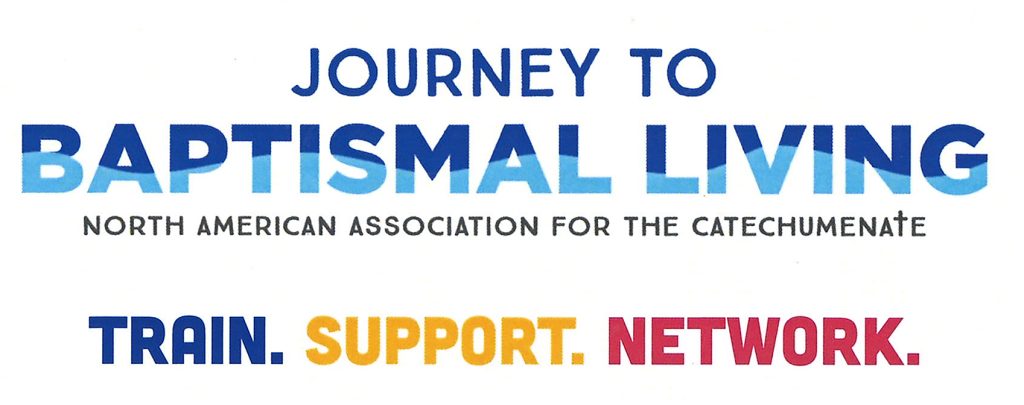
Resources from the Center for Church Music
The Center for Church Music is a place where one can tap into an expansive library of resources and perspectives on the music and art of the church, with a focus on a Lutheran context.
“Profiles in American Lutheran Church Music” presents video conversations with prominent church musicians The Life and Career of Richard Proulx, a conversation with Bob Batastini and Michael Silhavy, editors at GIA and The Current Scene, a conversation with Nancy Raabe, president of the Association of Lutheran Church Musicians, March 2023.
Sundays and Seasons: Guide to Worship Planning Year A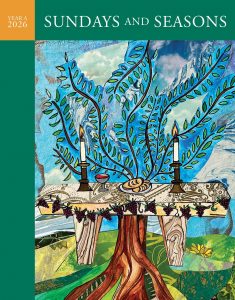
Sundays and Seasons supports comprehensive week-by-week planning with content and ideas for liturgy, music, preaching, and visuals that are shaped by the Revised Common Lectionary, the church year, and the assembly gathered around word and sacrament. Worship planners and leaders, preachers, presiding ministers, worship committees, musicians, visual artists, sacristans and altar guilds, and those who create congregational worship folders will find an indispensable companion in Sundays and Seasons as they prepare for worship each week. Sign up for a print subscription to receive your subsequent S&S materials when they are released!

